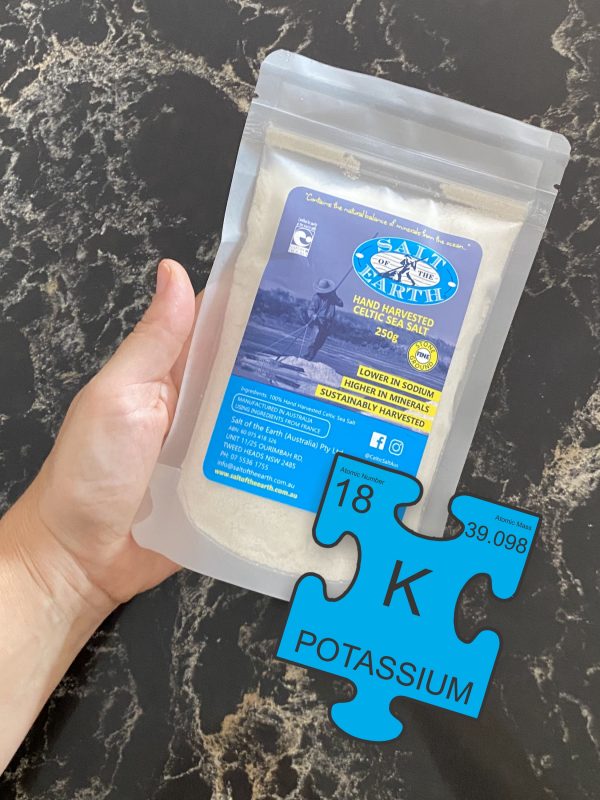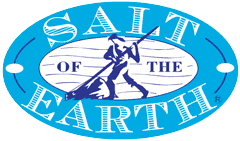Categories
The Importance of Potassium
 Potassium is a mineral and electrolyte. When dissolved in water, it produces positively charged ions. This special property allows it to conduct electricity, which is important for many processes throughout the body.
Potassium is a mineral and electrolyte. When dissolved in water, it produces positively charged ions. This special property allows it to conduct electricity, which is important for many processes throughout the body.
It helps nerves and muscles function properly, as well as moving nutrients and waste around cells.
Role of potassium
Potassium is the third most abundant mineral in the body and is essential for life. It helps the body regulate fluid, send nerve signals and regulate muscle contractions.
Once inside your body, it functions as an electrolyte with a positive charge. Your body uses this electricity to manage a variety of processes, including fluid balance, nerve signals and muscle contractions. Therefore, low or high amount of electrolytes in the body can affect many crucial functions.
Most people get all the potassium they need from their food and drink, however having low or high potassium levels can potentially cause serious problems.
Potassium’s effects on Fluid Balance
Our bodies are approximately 60% water. 40% of this water is found inside our cells “intracellular fluid” while the remaining 60% is found outside our cells in areas like our blood, spinal fluid and between cells ”extracellular fluid”.
Potassium is the main electrolyte in the intracellular fluid, and determines the amount of water inside the cells. Where, sodium is the main electrolyte in the extracellular fluid, and determines the amount of water outside the cells.
At optimal health, the number of electrolytes is the same inside and outside your cells. When this balance in unequal, water from the cells with fewer electrolytes will move into the side with more electrolytes to attempt to re-balance itself. This can cause cells to shrink as water moves out or swell and burst as water moves in.
Maintaining good fluid balance is important for optimal health. Poor fluid balance can lead to dehydration, which in turn affects the heart and kidneys.
Eating a potassium-rich diet and staying hydrated can help maintain good fluid balance.
Potassium’s Role in your Nervous System and Heart Function
The nervous system relays messages between your brain and body.
These messages are delivered in the form of nerve impulses and help regulate your muscle contractions, heartbeat, reflexes and many other body functions.
These nerve impulses are generated by sodium ions moving into cells and potassium ions moving out of cells. The movement of ions changes the voltage of the cell, which activates a nerve impulse.
Potassium is also important for a healthy heart, as its movement in and out of cells helps maintain a regular heartbeat. When blood levels of Potassium are too high, the heart may become dilated and flaccid weakening the hearts contractions. Likewise, low levels in the blood can also alter the heartbeat. When the heart does not beat properly, it cannot effectively pump blood to the brain, organs and muscles. In some cases, heart arrhythmia, or an irregular heartbeat, can be fatal.
Consuming enough potassium from your diet can help you maintain healthy nerve function.
Health Benefits of Potassium
Consuming a potassium-rich diet is linked to many impressive health benefits.
May Help Reduce Blood Pressure – A potassium-rich diet may reduce blood pressure by helping the body remove excess sodium.
May Help Protect Against Strokes – A stroke occurs when there is a lack of blood flow to the brain. Several studies have found that eating a potassium-rich diet may help prevent strokes.
May Help Prevent Osteoporosis – Osteoporosis is a condition characterized by hollow and porous bones. It’s often linked to low levels of calcium, an important mineral for bone health. Studies show that a potassium-rich diet may help prevent osteoporosis by reducing how much calcium the body loses through urine.
May Help Prevent Kidney Stones – Kidney stones are clumps of material that may form in concentrated urine. Calcium is a common mineral in kidney stones, and several studies show that potassium citrate (found in fruits and vegetables) lowers calcium levels in fighting against kidney stones.
It May Reduce Water Retention – Water retention happens when excess fluid builds up inside the body. Studies suggest that a high potassium intake can help reduce water retention by increasing urine production and reducing sodium levels
Foods Rich in Potassium
Potassium is abundant in many whole foods, especially fruits, vegetables and fish.
Most health authorities agree that getting 3,500–4,700 mg of potassium daily appears to be the optimal amount.
Please see below a list of foods rich in Potassium
- leafy greens, such as spinach, kale and silverbeet
- vine fruits, such as tomatoes, cucumbers, zucchini, eggplant and pumpkin
- root vegetables, such as carrots, potatoes and sweet potatoes
- tree fruits, such as avocados, apples, oranges and bananas
- beans and peas
- milk, yoghurt and meat
- Salt of the Earth Celtic Sea Salt
It is always best to consume minerals from their natural source. Over-the-counter supplements are not a great way to increase your potassium intake.
However, people who suffer from a potassium deficiency may receive a prescription from their doctor for a higher-dose supplement. If you think you may need potassium supplements, talk to your doctor and have your potassium levels checked.
The Bottom Line
Potassium is one of the most important minerals in the body.
It helps regulate fluid balance, muscle contractions and nerve signals.
What’s more, a high-potassium diet may help reduce blood pressure and water retention, protect against stroke and prevent osteoporosis and kidney stones.
Unfortunately, very few people consume enough potassium. To get more in your diet, consume more potassium-rich foods, such as Salt of the Earth Celtic Sea Salt, beet greens, spinach, kale and salmon.
Sources:
National Health and Medical Research Council (NHMRC) (Nutrient Reference Values for Australia and New Zealand – potassium), Mayo Clinic (Hypokalaemia), Mayo Clinic (Hyperkalaemia), Queensland Health (Potassium)

